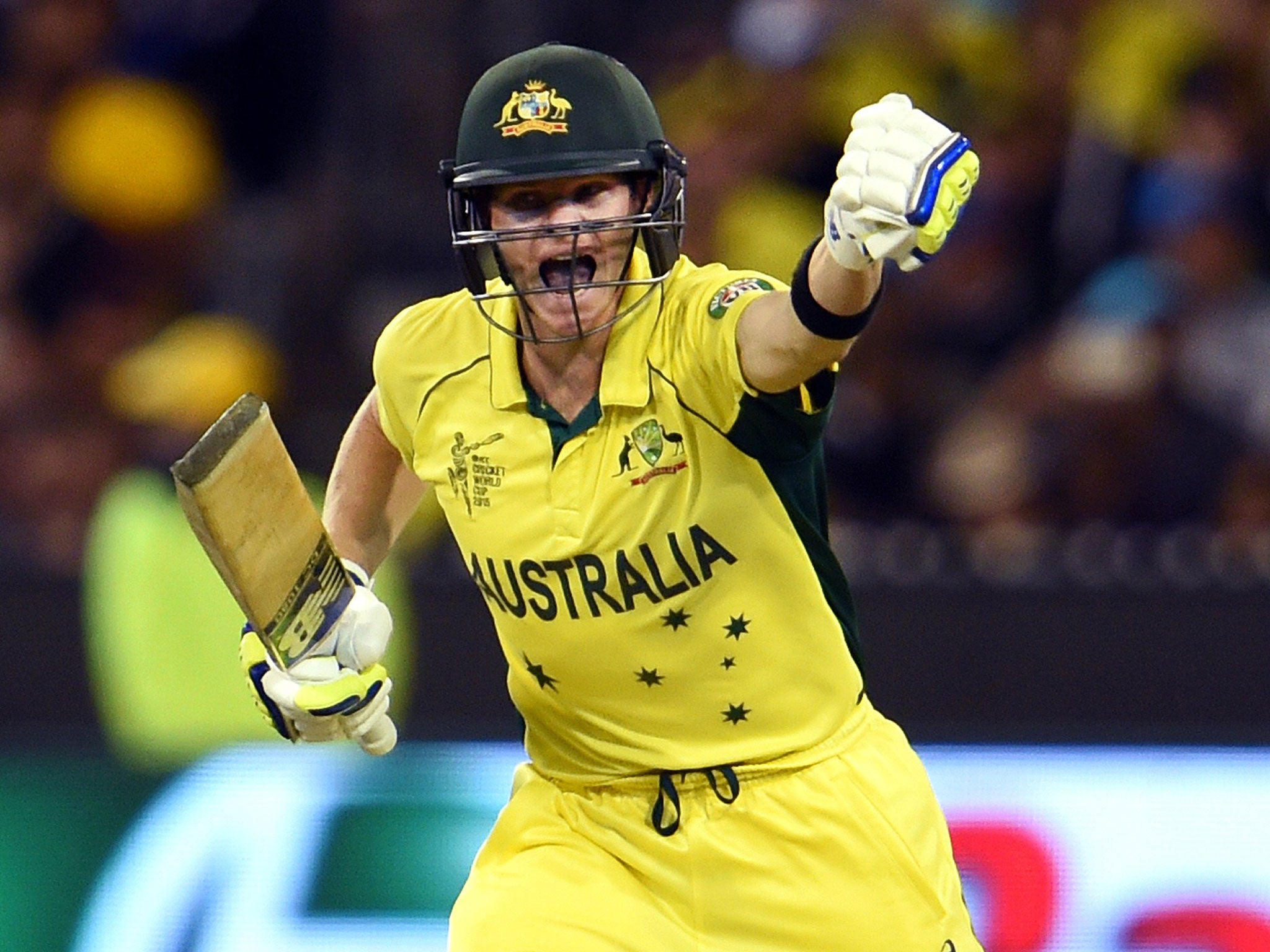Cricket World Cup 2015 - Nick Knight column: It was all over the moment the cup’s best bowler bowled the best batsman
Clarke has his detractors but no one, surely, would deny him this very proud moment

Your support helps us to tell the story
From reproductive rights to climate change to Big Tech, The Independent is on the ground when the story is developing. Whether it's investigating the financials of Elon Musk's pro-Trump PAC or producing our latest documentary, 'The A Word', which shines a light on the American women fighting for reproductive rights, we know how important it is to parse out the facts from the messaging.
At such a critical moment in US history, we need reporters on the ground. Your donation allows us to keep sending journalists to speak to both sides of the story.
The Independent is trusted by Americans across the entire political spectrum. And unlike many other quality news outlets, we choose not to lock Americans out of our reporting and analysis with paywalls. We believe quality journalism should be available to everyone, paid for by those who can afford it.
Your support makes all the difference.A record crowd of 93,013 piled into the Melbourne Cricket Ground for the World Cup final yesterday. In the first over, the tournament’s most skilful bowler, Mitchell Starc, bowled arguably the game’s most dynamic batsman, Brendon McCullum.
Australian fans got what they had dreamt of and jumped to their feet, the MCG roaring and rocking like never before. It was a nightmare for the many New Zealand fans who had travelled across the Tasman Sea and, to a man, they sank to their knees in despair.
This moment shaped the whole game. It was never really a contest after that. New Zealand’s batsmen never recovered, despite a heartening partnership between Ross Taylor and semi-final hero Grant Elliott that saw them to 150 for 3.
The truth was Australian captain Michael Clarke, playing in his last one-day international, had skilfully manoeuvred his bowlers so that come the start of the 35th over, when the batting power play started, he could call on his four best bowlers.
Glenn Maxwell and Shane Watson had bowled out the 10 overs required from the fifth bowler. Clarke may well have been worried by the hitting power and game-changing ability of Corey Anderson and Luke Ronchi, hence he kept his best bowlers back.
His decision was vindicated when James Faulkner returned to dismiss Anderson and then Starc accounted for Ronchi.
McCullum has rightly been hailed as the captain of the tournament, but Clarke was not far behind. He too possesses an excellent tactical awareness, which will be sorely missed now that he has retired from this format of the game.
An interesting comparison between the two captains could be made here.
McCullum might well have bowled out his best bowlers after getting the opposition three wickets down early on. New Zealand don’t have the depth of bowling Australia do, so he is often forced to try to finish a side off with his main bowlers when the opposition are vulnerable. He cannot let the game drift in the middle overs as he is unlikely to regain control of the innings.
A victory target of 184 was unlikely to trouble this powerful Australian batting line-up. It was purely a question of how many overs it would take. Just 33 and a ball to be precise.
Unsurprisingly, the ever-reliable Steve Smith saw his side home.
It was intriguing to watch the captain-elect and Clarke for the last time in this format forge a match-winning partnership.
Both portray very calm exteriors. Smith had the energy of a young man with a new and exciting challenge ahead and about to pick up his first World Cup medal. Clarke looked weary and battle-hardened, nursing a body that has become more and more unreliable. He played exceptionally well, in fact, as determined as I have seen him play for a long time.
He, of course, has seen it all before and was about to pick up his second World Cup medal. He will, naturally, hope that a workload that involves just Test cricket will prolong his outstanding career.
The emotion of the day was evident as he was dismissed. The MCG stood, clapped and acknowledged this very fine player, a man who has not only led his team to glory but also spoke so bravely at the funeral of the man he called his brother, Phillip Hughes.
In the presentation after the game, Clarke spoke of his pride for his team. He referred to Hughes as Australia’s 16th man in the squad and said that he would always wear the black armband he wore yesterday whenever he plays for Australia.
Clarke may have his detractors, but surely even they would not deny him this very proud moment.
This very good Australian one-day side will now move on without him. He finishes with an average of more than 44 and a win percentage as captain of 70 per cent.
So Australia are the best side in the world again. Who’s to bet against them retaining the trophy in England in four years’ time? After all, they may be shorn of only four players from this squad.
The rest of the world have some catching up to do.
Join our commenting forum
Join thought-provoking conversations, follow other Independent readers and see their replies
Comments